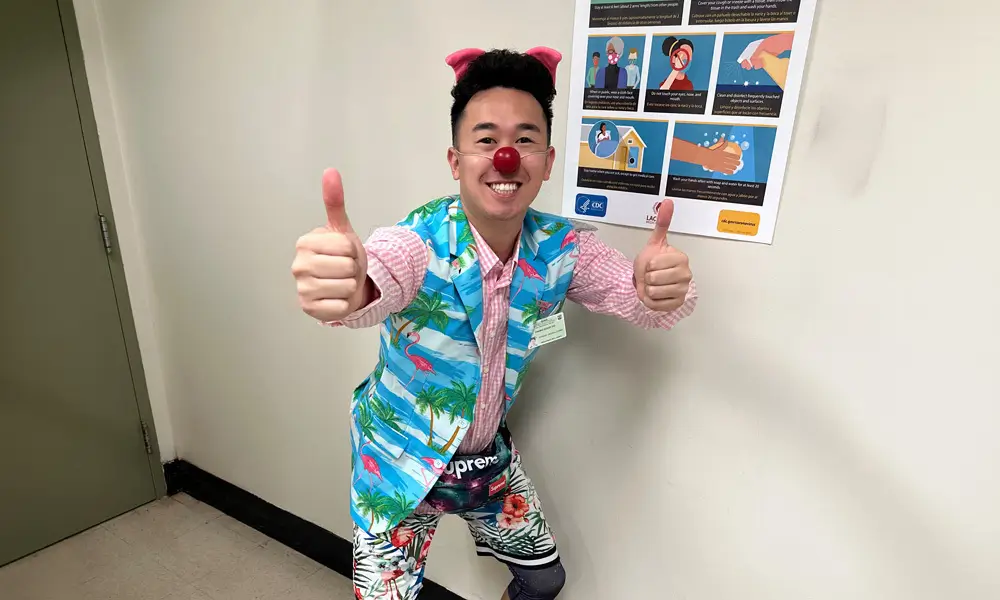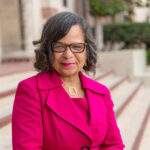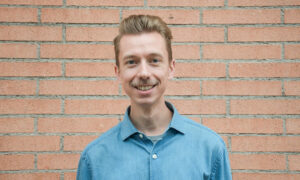Phong Doozy shows up to work in an unusual uniform: a sleeveless Hawaiian blazer full of flamingos, pink pig ears, shorts covered in flowers, and a red clown’s nose.
For five hours on Fridays, the student at the USC Sol Price School of Public Policy transforms into a medical clown. Doozy, a soon-to-be Master of Health Administration, is tasked with using laughter as medicine, putting smiles on the faces of those facing serious injuries or terminal illnesses.
During one trip to the Los Angeles General Medical Center, Doozy visited an 8-year-old boy with severe burns covering more than half of his body. Moving was painful, but doctors needed the child to lift his arms so they could rub ointment on him.
“Oh my gosh, we’re on a roller coaster!” Doozy exclaimed, raising his arms skyward as if he was about to plunge down a steep drop. The boy mimicked the clown, allowing doctors to apply ointment.
“We have to initiate ideas to allow kids to enter the world of play and willingly help themselves and help the doctors provide the best care to their ability,” Doozy said.
Comedy Relief
Doozy, who graduates on May 10, discovered the healing power of comedy while taking care of his grandparents. Doozy first became their caretaker in 2018 and moved in with them again in 2020 during the COVID-19 pandemic. Doozy continued to care for his grandmother after his grandfather died later that year.
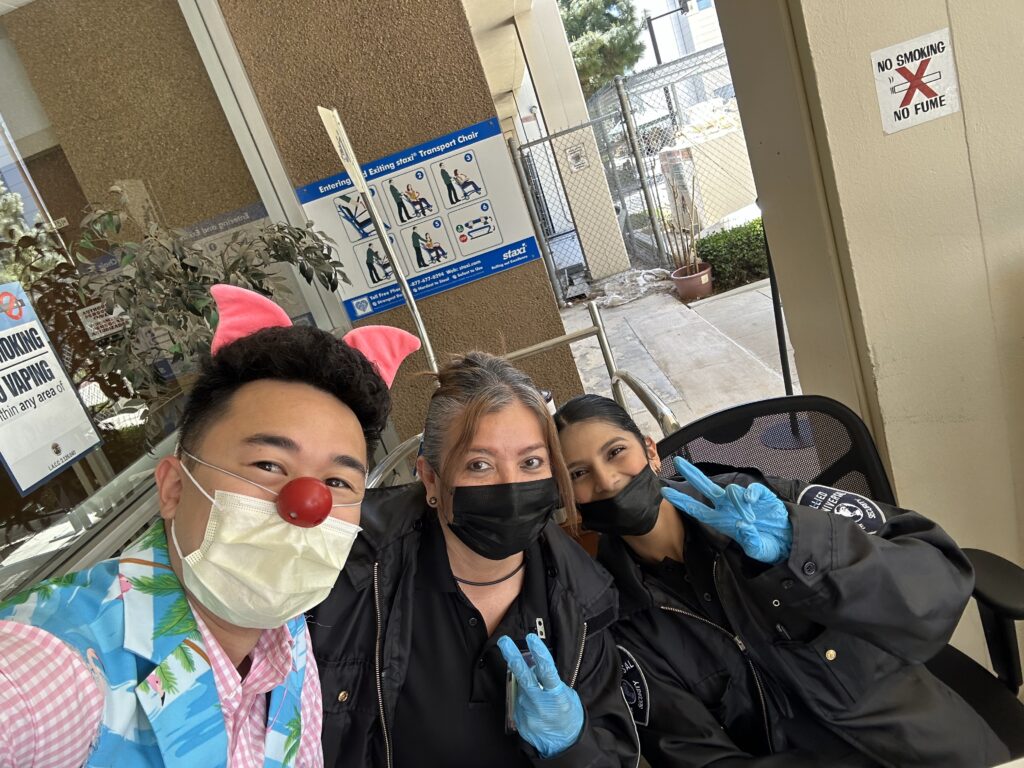
“I wanted to reignite life back into her, but it was so hard,” Doozy recalled.
While watching funny shows like “Whose Line Is It Anyway?,” “Impractical Jokers,” and Vietnamese skits, Doozy noticed his grandmother’s cognitive functions improve. At the same time, she was able to laugh and find humor in daily activities again, he said.
A year later, Doozy got the chance to make her laugh himself. He performed a virtual standup comedy routine at USC with his grandmother in the audience.
A Passion for Healthcare Access
The experience of taking care of his grandmother motivated him to pursue a career in healthcare. He said his grandparents, who only spoke Vietnamese, faced language barriers in medical settings and struggled to afford treatments. That made him passionate about healthcare access, affordability and communication.
While at USC, Doozy chaired the Wellness Committee of Undergraduate Student Government and developed a Wellness Resource Guide. The document identified local and national resources for students facing challenges with mental and physical health, sexual wellness and substance use.
He was inspired to do this work after he interned at Kaiser Permanente, where he helped create a “suicide prevention toolkit” that provided patients and clinicians with strategies and best practices to help patients suffering from poor mental health. Doozy also created “Prescription for Punchlines,” a recorded class on Kaiser’s website for people interested in learning how comedy works in healthcare.
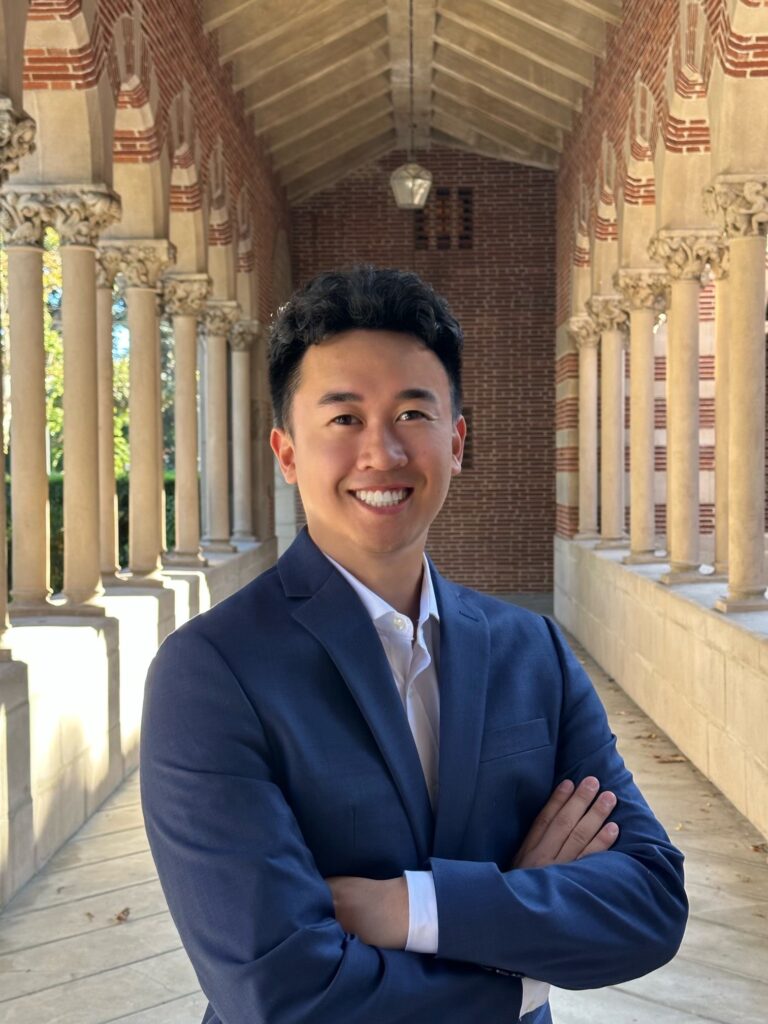
Beyond clowning, Doozy has found other ways to merge his passions for comedy and healthcare. For a directed research course with USC Price School Professor LaVonna Lewis, Phong researched the impact of comedy in healthcare, finding some evidence that laughter can aid patients and that comedy can be used as a communication tool.
“Phong’s family history has allowed him to experience our healthcare system through the lens of a caregiver, seeing first-hand the need for hope and humor as part of any health recovery journey,” Lewis said. “Using comedy to connect with patients and address their fears about what happens next in their health journey or using comedy to help prevent burnout by health care providers could have a significant impact on our conversations about health and well-being.”
“Phong uses humor to connect personally and professionally, reminding us of our shared humanity, and I expect he will be successful and well-respected in his journey as a health professional as a result,” Lewis added.
Beyond health policy and comedy, Doozy seems to have studied just about everything else, too. In addition to his Master of Health Administration, Doozy will graduate with a Bachelor’s of Arts in Health and Human Sciences from the Dornsife College of Letters, Arts, and Sciences – with an emphasis in Aging from the Leonard Davis School of Gerontology. He will also earn minors in Comedy Performance from the School of Dramatic Arts and Psychology and Law (Dornsife and Gould School of Law).
Clowning Around
Doozy got into medical clowning through USC Comic+Care, a program within the School of Dramatic Arts that deploys humor to improve the physical and mental well-being of hospital patients.
The work can be challenging for a comic. For example, Doozy must sometimes perform behind a window if a patient is infected with an airborne virus. In those instances, Doozy becomes more of a mime, performing without talking.
“That challenges us to think critically but also meet the patient where they are,” Doozy said. “That’s the most important thing.”
Doozy has pushed the USC Comic+Care program forward maybe more than any other student, said Zachary Steel, the program’s director and Assistant Professor of Theatre Practice at the School of Dramatic Arts.
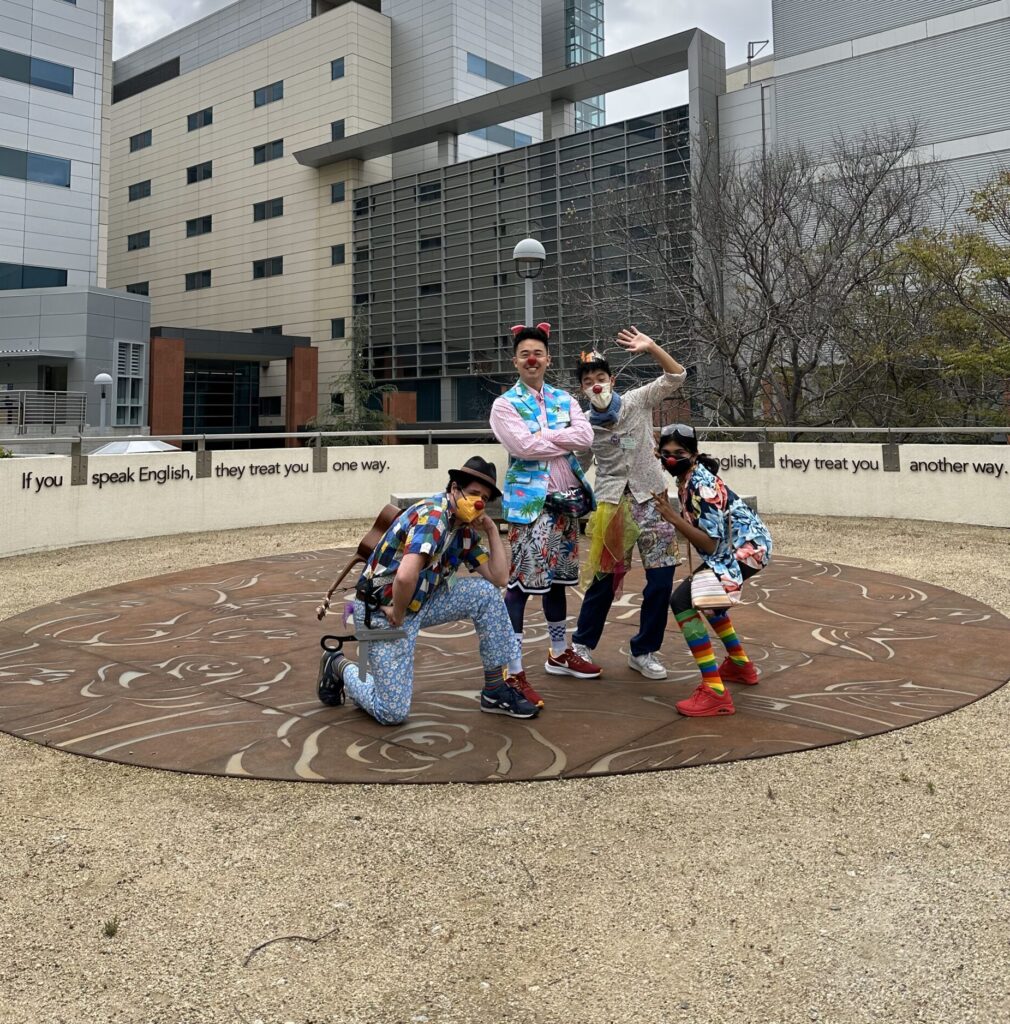
“Not only does he excel in the actual work of bringing joy and play to patients in the hospital, but his enthusiasm and support for the program has been instrumental,” Steel said.
Doozy made his clown outfit deliberately chaotic. The vibrant colors and mismatched clothes are meant to stand in stark contrast to the uniformity typically found in hospitals. That feeds into a major goal of medical clowns: to introduce eccentricity and fun into the hospital environment.
“By wearing these costumes and embracing our roles, we intentionally position ourselves at the bottom of the hospital hierarchy,” Doozy said. “This approach aims to uplift our patients, ensuring they never feel like they are at the bottom.”
Discovering his love for comedy while at USC has prepared him to bring innovative ways of thinking to his future career as a healthcare administrator, he said.
“When I first started sharing laughter therapy with others, I thought deeply about what comedy meant to me. I asked myself: ‘Is she a universal language? Is she a caring soul? Is she a medicine?’” Doozy said. “I couldn’t tell you what comedy is to anyone else, but to me, she is all of the above.”
